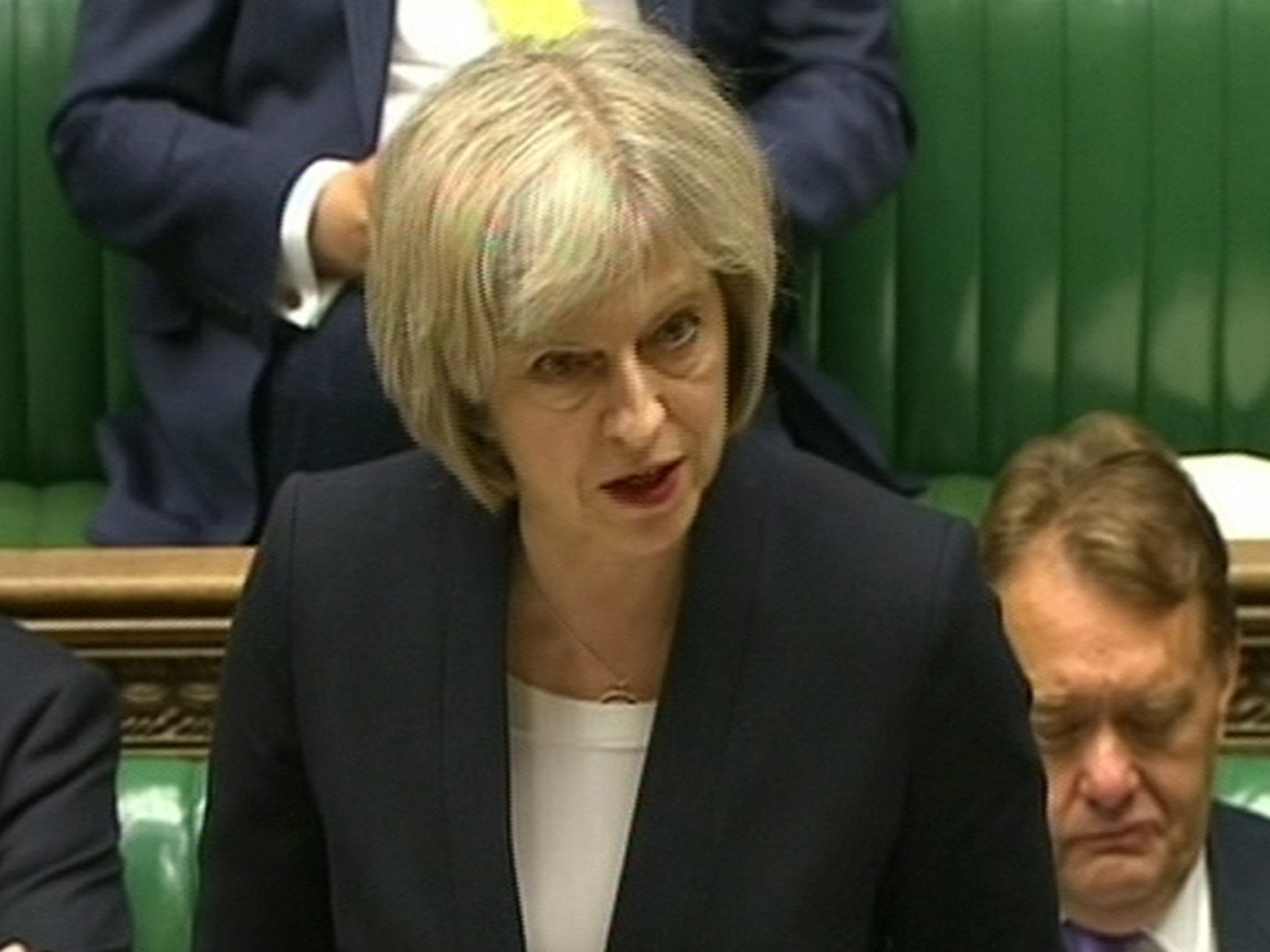Donald Macintyre's Sketch: Theresa May's masterclass in the art of politics
May's response to a report critical of her spy plans was pure gold

Your support helps us to tell the story
From reproductive rights to climate change to Big Tech, The Independent is on the ground when the story is developing. Whether it's investigating the financials of Elon Musk's pro-Trump PAC or producing our latest documentary, 'The A Word', which shines a light on the American women fighting for reproductive rights, we know how important it is to parse out the facts from the messaging.
At such a critical moment in US history, we need reporters on the ground. Your donation allows us to keep sending journalists to speak to both sides of the story.
The Independent is trusted by Americans across the entire political spectrum. And unlike many other quality news outlets, we choose not to lock Americans out of our reporting and analysis with paywalls. We believe quality journalism should be available to everyone, paid for by those who can afford it.
Your support makes all the difference.This was a masterclass in equivocation. When you’ve been around in a top job as long as Theresa May, you can make your response to a report you’ve asked for – but which has some conclusions you’re distinctly iffy about – look almost easy.
First, of course, you personally thank the QC and intelligence watchdog who produced it, David Anderson, for his “thoroughness and dedication”.
And you naturally stress the bits you like – such as the report’s highlighting of “the range of threats against the UK and its interests from terrorism, both at home and overseas, to cyber attacks from criminals”.
Then you mention there are several other reports – including one from the parliamentary Intelligence and Security Committee – contradicting an Anderson recommendation you’re doubtful about, namely giving judges the say on individual interception warrants. And emphasise that all of these contributions will “provide a firm basis for consultation on legislation”.
And when, as your Labour shadow Yvette Cooper points out, the Anderson report says “there should be no question of progressing proposals for the compulsory retention of third-party data before a compelling operational case for it has been made out (as it has not been to date)”, you nuance it skilfully, saying: ah, he’s not ruling it out but merely arguing “he would like to see a better case made for it than has been made in the past”.
The Tory David Davis wasn’t having this. Especially the “excellent” report’s proposal on judges authorising intercepts. “This country relies on ministerial authorisation more than any other country in the world, with the possible exception of Zimbabwe,” he said.
May’s reply was a classic. There were relations between the executive and judiciary to consider. “I don’t intend to say that the Government are going to do one thing or another. It is right that we reflect more fully on these aspects.”
Luckily Dominic Grieve, sacked as Attorney General after opposing the repeal of the Human Rights Act, was more helpful.
He “greatly welcomed” the “Government’s move towards a new legislative framework,” and added, “we should give our agencies the powers they need to protect us which they have been doing very well and ethically.” Could it just be that Grieve is being lined up by No 10 as the new Intelligence and Security Committee chairman after all? At least he hasn’t tried to chair the Justice Committee where he could have been a real pain on the human rights issue.
Join our commenting forum
Join thought-provoking conversations, follow other Independent readers and see their replies
Comments